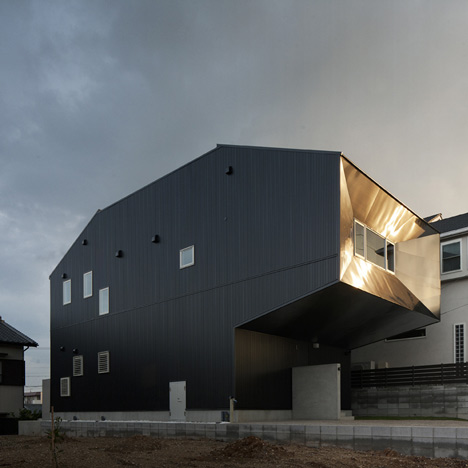
Hansha Reflection House by Studio SKLIM
A bevelled cantilever contains the living room of this house in Nagoya, Japan, by architects Studio SKLIM.
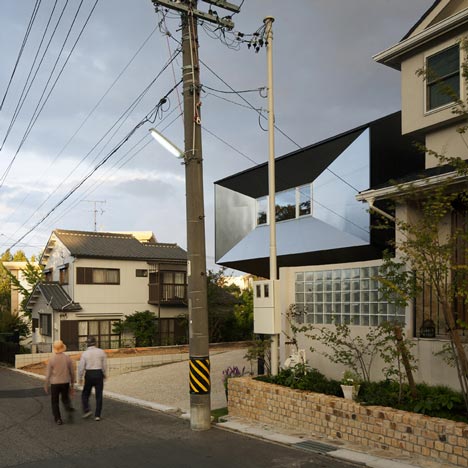
Named the Hansha Reflection House, the two-storey house has an entrance beneath its projecting first floor.
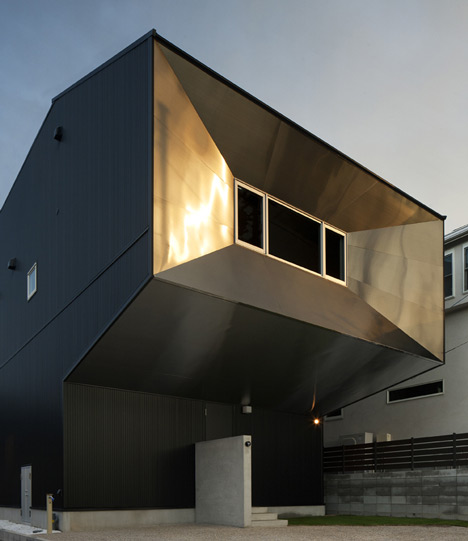
Shiny metal panels clad the indented face and underside of the cantilever, while a large window is positioned at its centre.
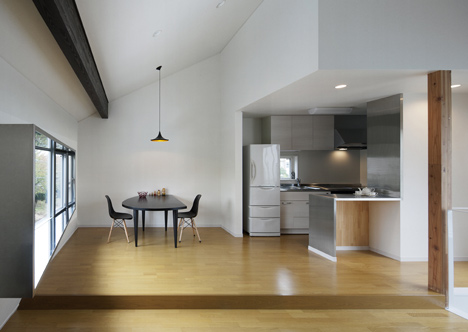
A ground-floor courtyard is hidden behind the house’s exterior wall and a terrace is located on the roof.
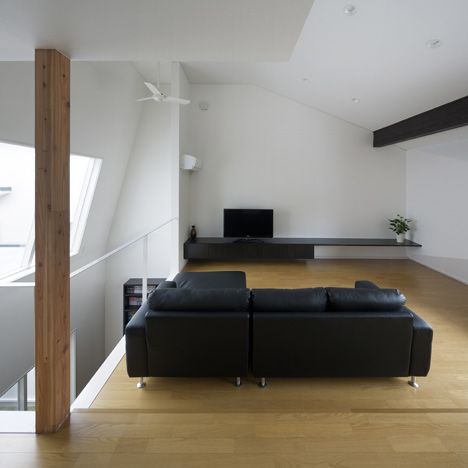
A study occupies a room beside the entrance and three bedrooms are split between the two floors.
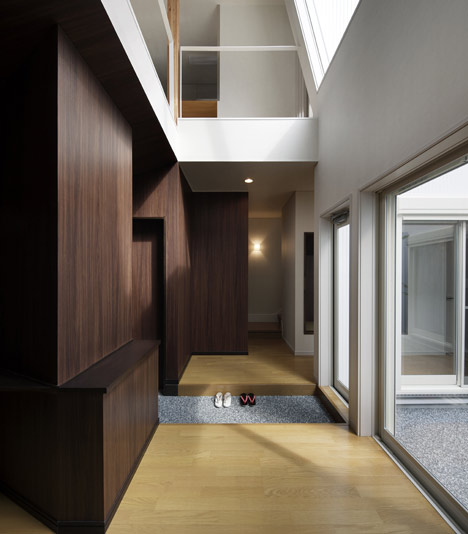
Studio SKLIM are based in both Singapore and Japan, and this is the first of their Japanese projects that we've published. You can see two Singapore projects by the architects here.
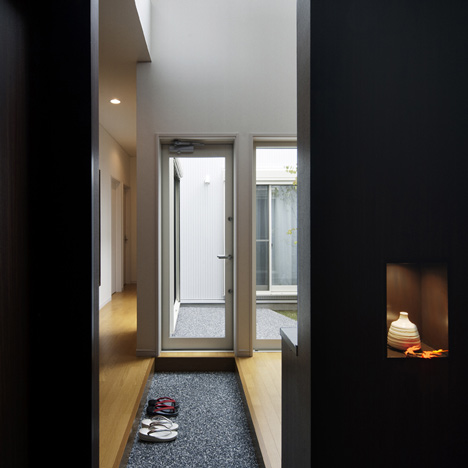
Photography is by Jeremy San / Studio SKLIM.
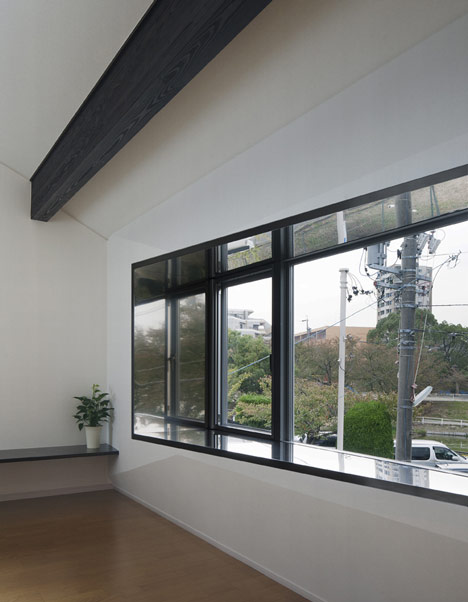
Here's some more text from Studio SKLIM:
Hansha Reflection House @ Nagoya, Japan
In Greek mythology, Narcissus looked into the lake to admire his beauty. But what if the lake was animate and looking at its own reflection in Narcissus eyes?
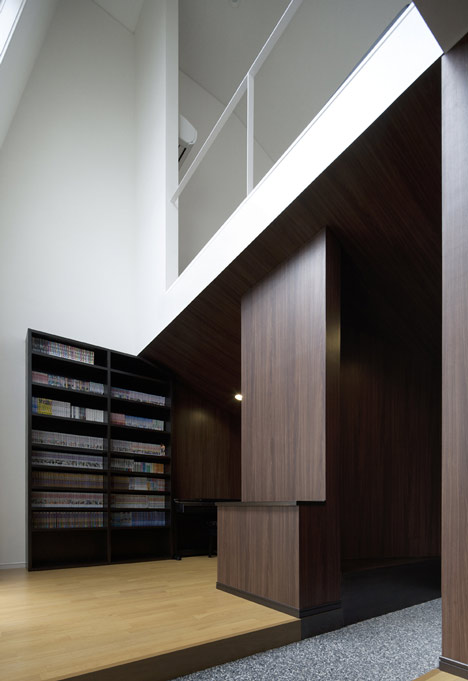
Situated at the entrance of Misakimizube Koen, one of the picturesque parks fronting a lake and flanked by Sakura trees, the house was conceived to be an object with the environment.
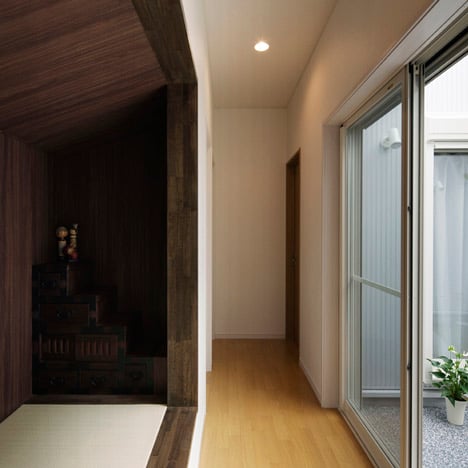
The programmatic zones of Public, Service and Private spatially organised the house into 3 distinct zones with further punctuation of the main massing with the Landscape element; providing spaces for the courtyard and roof deck.
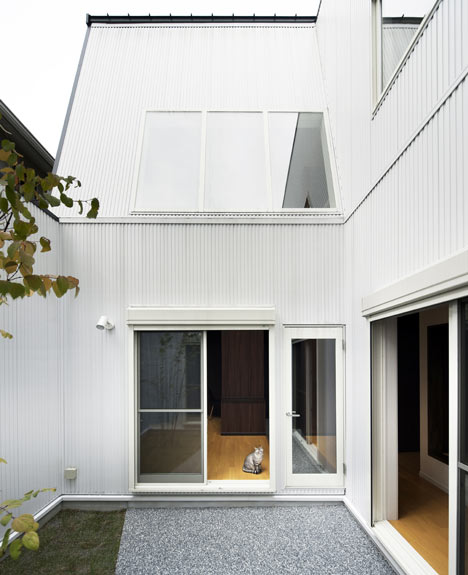
This base form was further chiseled with structure, daylight/ventilation and viewpoint concerns.
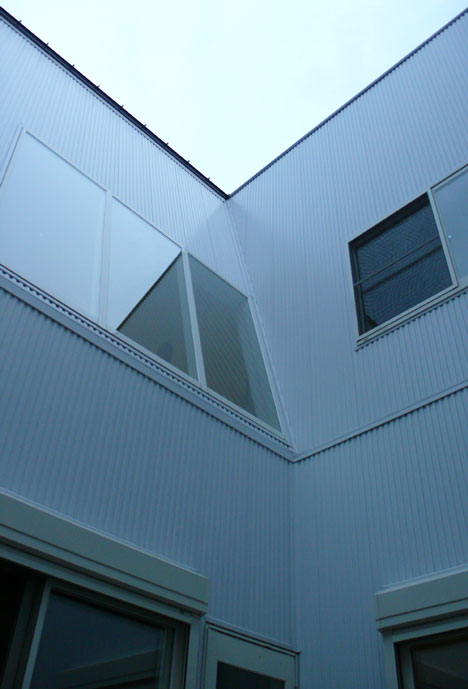
65% of low rise Japanese houses are constructed out of timber, a material that has the strongest weight to strength ratio amongst other building materials like concrete and steel.
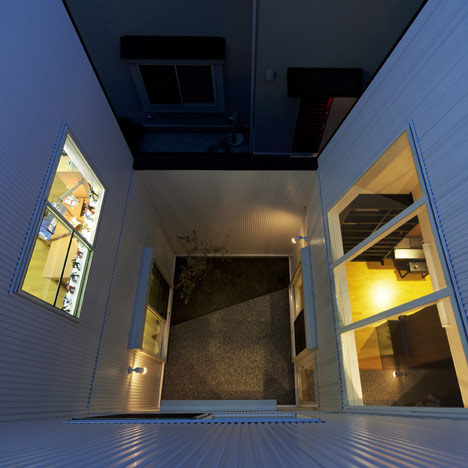
Using timber from a renewable source, coupled with building technology that utilised a hybrid of traditional mortise and tenon joint system with steel bracketing, this house was able to push the ubiquitous “boxed” building envelope for timber residential construction in Japan. The solution to push the Public program to the upper level was obvious with the need to accommodate parking for 3 cars. In addition, this offered an elevated scenic view of the park by having living/dining/kitchen at the second level.
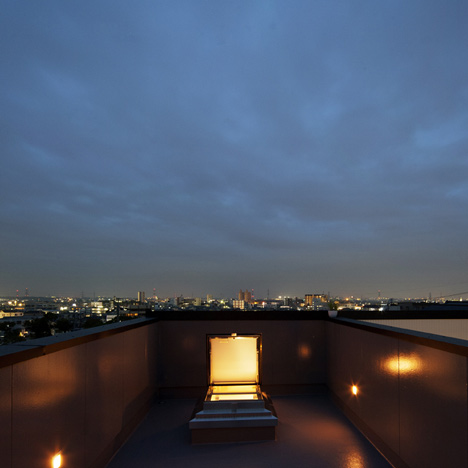
The extensive 3.2 m wooden cantilever was unusual with the norm capped at 1.5 m. The initial structural concept of using a truss floor progressed to the final structural solution; using an elegant inspiration from bridge construction and book shelf bracketing. Further reinforcement of the structure was made in the courtyard wall to reduce eccentricity of built form and thus lateral movements during earthquakes.
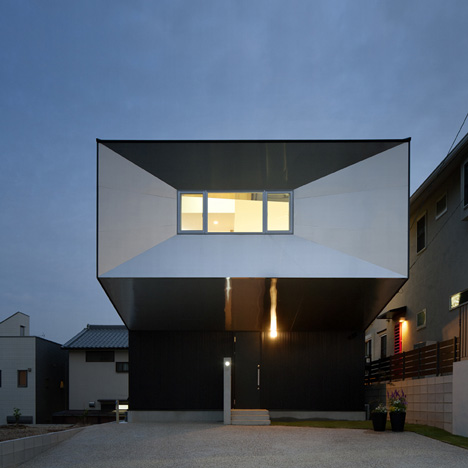
The idea of “Reflection” was multifarious and became a series of unfolded meanings; exterior reflection of surrounding, interior reflection of surroundings, introspective reflection spaces and reflection of the house structure.
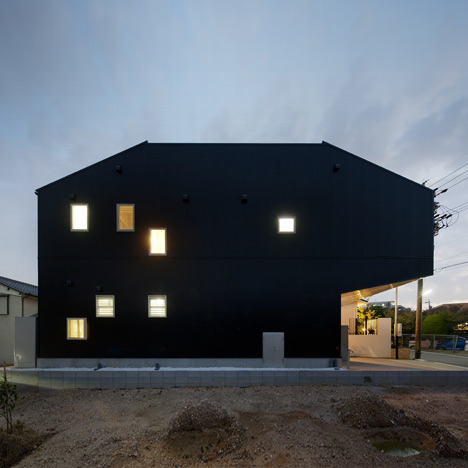
The landscape falls into three areas, the front yard, the courtyard and the roof deck. The front yard accommodates parking for three cars and becomes the entrance frame for the house.
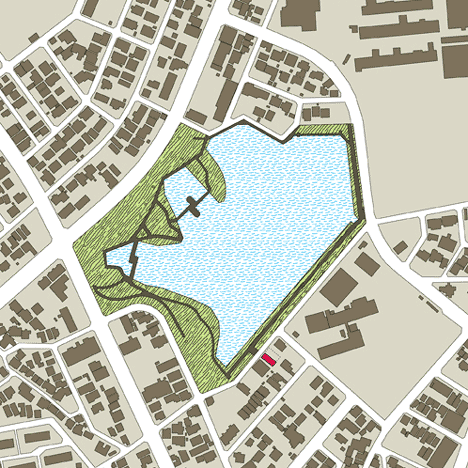
The connecting tissue to the park relies on the structurally evolved facade that visually associates with it and uses similar ground paving material.
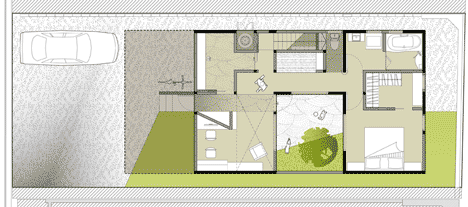
The courtyard, an intimate private garden forms part of the environmental funnel to dissipate hot air during summer. This space further anchors the master bedroom, 1-tatami introspective room, and double volume library.
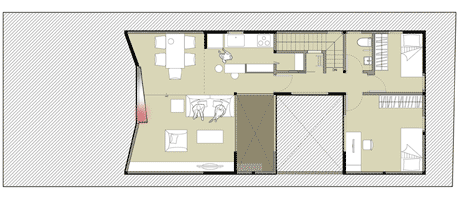
The roof deck, the pinnacle of the house further heighten one’s sense of place with its surroundings and provides the perfect viewing platform for both Hanami (Sakura) and Hanabi (Fireworks) festivals.
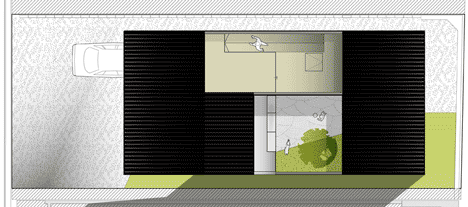
Hansha Reflection House condenses the energies on site to formulate a dwelling that looks back at the surroundings with a slight twist.
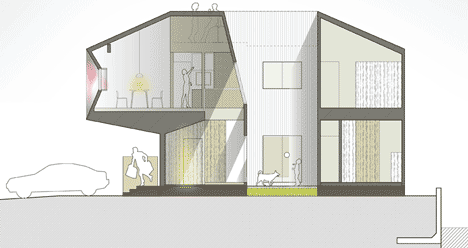
CLIENT: Confidential
PROGRAM: 2 Storey Detached House with Courtyard and Roof Deck
AREA: 124m2
STATUS: Completed
DESIGN ARCHITECT: Studio SKLIM
KEY PERSONNEL: Kevin Lim
COLLABORATORS: Federico Mira (3D Visualization)
BUILDER: Sakae Advanced Housing Technology
STRUCTURE: KES System Headquarters Shelter
TIME PERIOD: 2010 - 2011